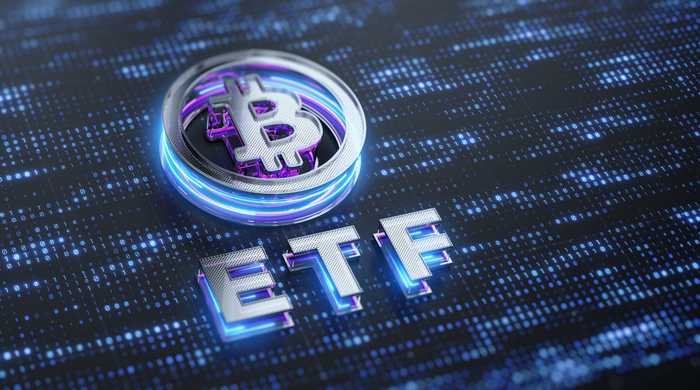-
 Bitcoin
Bitcoin $87,315.1852
3.56% -
 Ethereum
Ethereum $1,630.6745
3.43% -
 Tether USDt
Tether USDt $1.0000
-0.01% -
 XRP
XRP $2.1211
3.50% -
 BNB
BNB $601.3750
1.83% -
 Solana
Solana $139.4069
1.88% -
 USDC
USDC $1.0000
0.00% -
 Dogecoin
Dogecoin $0.1621
5.44% -
 TRON
TRON $0.2427
-1.07% -
 Cardano
Cardano $0.6408
4.12% -
 Chainlink
Chainlink $13.4721
4.10% -
 Avalanche
Avalanche $20.5905
6.44% -
 UNUS SED LEO
UNUS SED LEO $9.0293
-3.55% -
 Stellar
Stellar $0.2580
6.57% -
 Toncoin
Toncoin $3.0124
1.24% -
 Shiba Inu
Shiba Inu $0.0...01262
3.69% -
 Sui
Sui $2.2608
7.36% -
 Hedera
Hedera $0.1701
4.81% -
 Bitcoin Cash
Bitcoin Cash $340.3613
1.98% -
 Polkadot
Polkadot $3.9035
2.19% -
 Litecoin
Litecoin $80.3247
5.82% -
 Hyperliquid
Hyperliquid $17.9745
1.79% -
 Dai
Dai $1.0000
0.00% -
 Bitget Token
Bitget Token $4.4669
1.79% -
 Ethena USDe
Ethena USDe $0.9992
0.00% -
 Pi
Pi $0.6333
1.02% -
 Monero
Monero $215.0155
0.40% -
 Uniswap
Uniswap $5.4281
4.46% -
 Pepe
Pepe $0.0...07881
7.27% -
 Aptos
Aptos $5.1724
4.43%
Do Bitcoin ETF fees need to be paid every trading day?
No, Bitcoin ETF fees are usually not paid daily, but rather as one-time fees upon buying or selling shares, or as ongoing management fees based on ETF assets.
Oct 24, 2024 at 02:20 pm

Do Bitcoin ETF Fees Need to be Paid Daily?
1. ETF Trading Fees
Exchange-traded funds (ETFs) typically charge trading fees as a percentage of the trade value. These fees are paid when buying or selling ETF shares. Fees for Bitcoin ETFs vary among different brokers, but they are generally comparable to fees charged for equity ETFs.
2. Management Fees and Expense Ratios
Bitcoin ETFs also incur ongoing management fees and expense ratios. These fees cover operating costs such as portfolio management, administration, and marketing. The management fee is typically expressed as an annual percentage of the ETF's net assets. Expense ratios also include other fund-related expenses, such as auditing, legal fees, and brokerage commissions.
3. Trading Frequency
Traditional ETFs often recommend holding for longer periods and discourage frequent trading. Some Bitcoin ETFs may be more actively traded, but excessive trading can incur additional costs. Selling and buying shares frequently could result in paying multiple trading fees and impact overall returns.
4. Fee Structure for Specific Bitcoin ETFs
Different Bitcoin ETFs may have varying fee structures. It's important to check the prospectus or disclosures for each specific ETF to determine its fee details, including management fees and expense ratios.
Therefore, the answer is no. Bitcoin ETF fees are not typically paid every trading day. They are mostly one-time fees incurred when buying or selling shares, or ongoing fees paid as a percentage of the ETF's assets.
Disclaimer:info@kdj.com
The information provided is not trading advice. kdj.com does not assume any responsibility for any investments made based on the information provided in this article. Cryptocurrencies are highly volatile and it is highly recommended that you invest with caution after thorough research!
If you believe that the content used on this website infringes your copyright, please contact us immediately (info@kdj.com) and we will delete it promptly.
- Elixir AI Disrupts the Crypto World with Its Cutting-Edge 3D Content Generation Platform
- 2025-04-21 21:00:13
- The Next Big Thing in Web3? Bitcoin Consolidates as Investors Eye Three Top Altcoins: Mantra, Memecoin, and Pi Network
- 2025-04-21 21:00:13
- AI Coins Are on the Rise, $SUBBD Token Leads the Charge by 26%
- 2025-04-21 20:55:13
- MicroStrategy (MSTR) Continues Its Aggressive Bitcoin Buying Strategy in 2025
- 2025-04-21 20:55:13
- MicroStrategy ( Formerly Known as Microstrategy) Has Continued Its Aggressive Bitcoin Buying Strategy in 2025
- 2025-04-21 20:50:12
- MicroStrategy Buys the Dip, Adding 6,556 Bitcoin to Its Holdings
- 2025-04-21 20:50:12
Related knowledge

What is the difference in returns between long-term holding of a Bitcoin ETF and holding Bitcoin directly?
Apr 09,2025 at 04:15am
When considering the difference in returns between long-term holding of a Bitcoin ETF and holding Bitcoin directly, it's essential to understand the nuances and factors that affect each investment option. Both approaches have their unique advantages and potential drawbacks, which can significantly impact the overall returns over time. Understanding Bitc...

How is the "roll cost" of a futures Bitcoin ETF generated?
Apr 08,2025 at 01:22pm
The 'roll cost' of a futures Bitcoin ETF is a critical concept for investors to understand, as it directly impacts the performance of the ETF. In this article, we will delve into the mechanics of how the roll cost is generated, exploring the underlying processes and factors that contribute to this cost. Understanding Futures ContractsFutures contracts a...

How can the premium or discount of a Bitcoin ETF be narrowed through an arbitrage mechanism?
Apr 09,2025 at 12:07am
Arbitrage mechanisms play a crucial role in narrowing the premium or discount of a Bitcoin Exchange Traded Fund (ETF). Understanding how these mechanisms work can provide valuable insights into the dynamics of Bitcoin ETFs and their relationship with the underlying asset. This article will delve into the specifics of how arbitrage can be used to align t...

What factors affect the bid-ask spread of a Bitcoin ETF?
Apr 08,2025 at 08:50pm
The bid-ask spread of a Bitcoin Exchange Traded Fund (ETF) is a critical metric that investors and traders closely monitor. It represents the difference between the highest price a buyer is willing to pay (bid) and the lowest price a seller is willing to accept (ask). Several factors influence this spread, and understanding them can help investors make ...

How is the seed capital of a Bitcoin ETF used?
Apr 10,2025 at 02:15pm
The seed capital of a Bitcoin ETF plays a crucial role in the establishment and operation of the fund. This initial investment is used to create the fund's underlying assets, manage operational costs, and ensure the ETF can start trading on an exchange. Understanding how this seed capital is utilized provides insight into the mechanics of Bitcoin ETFs a...

What is the difference between "physically backed" and "synthetic" Bitcoin ETFs in terms of holding assets?
Apr 10,2025 at 04:56pm
Bitcoin Exchange Traded Funds (ETFs) have become a popular way for investors to gain exposure to the cryptocurrency market without directly owning the underlying asset. There are two primary types of Bitcoin ETFs: physically backed and synthetic. Understanding the differences between these two types, particularly in terms of how they hold assets, is cru...

What is the difference in returns between long-term holding of a Bitcoin ETF and holding Bitcoin directly?
Apr 09,2025 at 04:15am
When considering the difference in returns between long-term holding of a Bitcoin ETF and holding Bitcoin directly, it's essential to understand the nuances and factors that affect each investment option. Both approaches have their unique advantages and potential drawbacks, which can significantly impact the overall returns over time. Understanding Bitc...

How is the "roll cost" of a futures Bitcoin ETF generated?
Apr 08,2025 at 01:22pm
The 'roll cost' of a futures Bitcoin ETF is a critical concept for investors to understand, as it directly impacts the performance of the ETF. In this article, we will delve into the mechanics of how the roll cost is generated, exploring the underlying processes and factors that contribute to this cost. Understanding Futures ContractsFutures contracts a...

How can the premium or discount of a Bitcoin ETF be narrowed through an arbitrage mechanism?
Apr 09,2025 at 12:07am
Arbitrage mechanisms play a crucial role in narrowing the premium or discount of a Bitcoin Exchange Traded Fund (ETF). Understanding how these mechanisms work can provide valuable insights into the dynamics of Bitcoin ETFs and their relationship with the underlying asset. This article will delve into the specifics of how arbitrage can be used to align t...

What factors affect the bid-ask spread of a Bitcoin ETF?
Apr 08,2025 at 08:50pm
The bid-ask spread of a Bitcoin Exchange Traded Fund (ETF) is a critical metric that investors and traders closely monitor. It represents the difference between the highest price a buyer is willing to pay (bid) and the lowest price a seller is willing to accept (ask). Several factors influence this spread, and understanding them can help investors make ...

How is the seed capital of a Bitcoin ETF used?
Apr 10,2025 at 02:15pm
The seed capital of a Bitcoin ETF plays a crucial role in the establishment and operation of the fund. This initial investment is used to create the fund's underlying assets, manage operational costs, and ensure the ETF can start trading on an exchange. Understanding how this seed capital is utilized provides insight into the mechanics of Bitcoin ETFs a...

What is the difference between "physically backed" and "synthetic" Bitcoin ETFs in terms of holding assets?
Apr 10,2025 at 04:56pm
Bitcoin Exchange Traded Funds (ETFs) have become a popular way for investors to gain exposure to the cryptocurrency market without directly owning the underlying asset. There are two primary types of Bitcoin ETFs: physically backed and synthetic. Understanding the differences between these two types, particularly in terms of how they hold assets, is cru...
See all articles






















































































